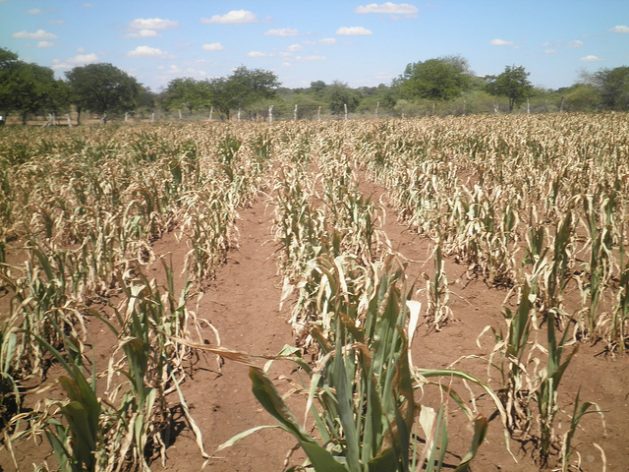[ad_1]

URBANA, Illinois, USA, Aug 18 (IPS) – Throughout the U.S., and all over the world, extremes in climate patterns, from drought to extreme warmth to flooding to wildfires to outbreaks of insect pests and illness have grow to be frequent and are predicted to proceed to grow to be extra intense due to local weather change, and the warming of our planet.
These reoccurring climate-linked excessive occasions function warning alerts that no state, nation, or area is proof against local weather change. Leaders and residents in all areas should act with urgency to mitigate this existential risk to humanity.
These record-breaking and historic extremes in climate, impacting farmers and our potential to develop important agricultural crops similar to maize, wheat, soybeans, wheat, and greens together with tomatoes, mark a pivotal second for all of us, together with scientists, and coverage makers at each the state and federal ranges. Rather more must occur to strengthen agricultural methods of at the moment in order that crops can stand up to these adversities.
As leaders all over the world think about local weather mitigation initiatives, they should make sure to strengthen agricultural crops’ resilience to excessive warmth, drought, insect herbivory and flooding, which have grow to be more and more frequent.
Like people, crops are delicate to drought and excessive warmth and the interactions of drought and warmth. When temperatures are excessive, regular crop progress and growth is affected. Additional, a number of necessary crop physiological processes similar to respiration, photosynthesis and transpiration are affected by warmth stress.
Equally, agricultural crops together with maize and vegetable crops similar to tomato are additionally delicate to extreme rainfall and flooding stress when it occurs individually or together with different stressors. Proof thus far reveals that, in truth, extreme rainfall ends in maize yield losses of comparable magnitude to drought.
In the end, due to extremes led to by local weather change, crops’ regular progress is affected with penalties for yields, meals provide and safety in addition to agriculture. That is problematic for a lot of causes, together with as a result of agriculture is a vital sector of economies of the US, the UK, France and many African nations.
Of concern are the cascading penalties and different legacy results which will linger on, lengthy after excessive occasions similar to drought have occurred. These legacy results have an effect on each soils, microbial communities dwelling within the soils and the well being of crop crops which are grown in years to return.
Clearly, there’s an pressing must have actionable methods to assist strengthen crops and agricultural resilience to drought, warmth waves, elevated temperatures, flooding, excessive precipitation, and bug outbreaks.
Strengthening the resilience of agricultural and crop crops calls for the incorporation of a number of actionable methods.
Among the many actionable methods is to encourage farmers to undertake climate-smart practices. Local weather good practices embody many approaches starting from planting warmth and drought tolerant crop varieties to planting varieties which have been bred to boost their photosynthetic capacities and water use efficiencies when durations of stress happen, to making use of merchandise similar to silicon and silicone nanoparticles to making use of inoculants which are constituted of naturally occurring useful soil microbes that may confer tolerance to warmth and drought amongst different stressors.
As well as, growers can undertake soil well being conservation practices together with planting cowl crops, mulching, and training no until or diminished tillage. All these practices finally enhance soil well being. It’s a win-win,
In parallel, there’s must fund analysis to know how agricultural crops reply to drought, flooding, insect herbivory outbreaks and different climate-linked stresses. There’s must fund analysis that breeds crops that may develop underneath the brand new local weather extremes together with crops that may develop and produce when two stressors occur together.
All these actionable methods require some type of capital; therefore it will be significant for growers to be assisted with the capital and different inputs they should undertake climate-smart methods and different soil well being conservation practices. Governments, NGO’s, personal funders should work collectively and create partnerships that search to make sure that growers and researchers have funds wanted to undertake these practices.
In coping with local weather change extremes that threaten the expansion, growth, and the well being of agricultural crops which are necessary to satisfy our meals safety wants, we should select to facilitate the adoption of practices that strengthen crops resilience to those stressors. Each funding in analysis and funding the adoption of those methods by growers helps.
Esther Ngumbi, PhD is Assistant Professor, Division of Entomology, African American Research Division, College of Illinois at Urbana-Champaign
© Inter Press Service (2023) — All Rights ReservedUnique supply: Inter Press Service
[ad_2]
Source_link













